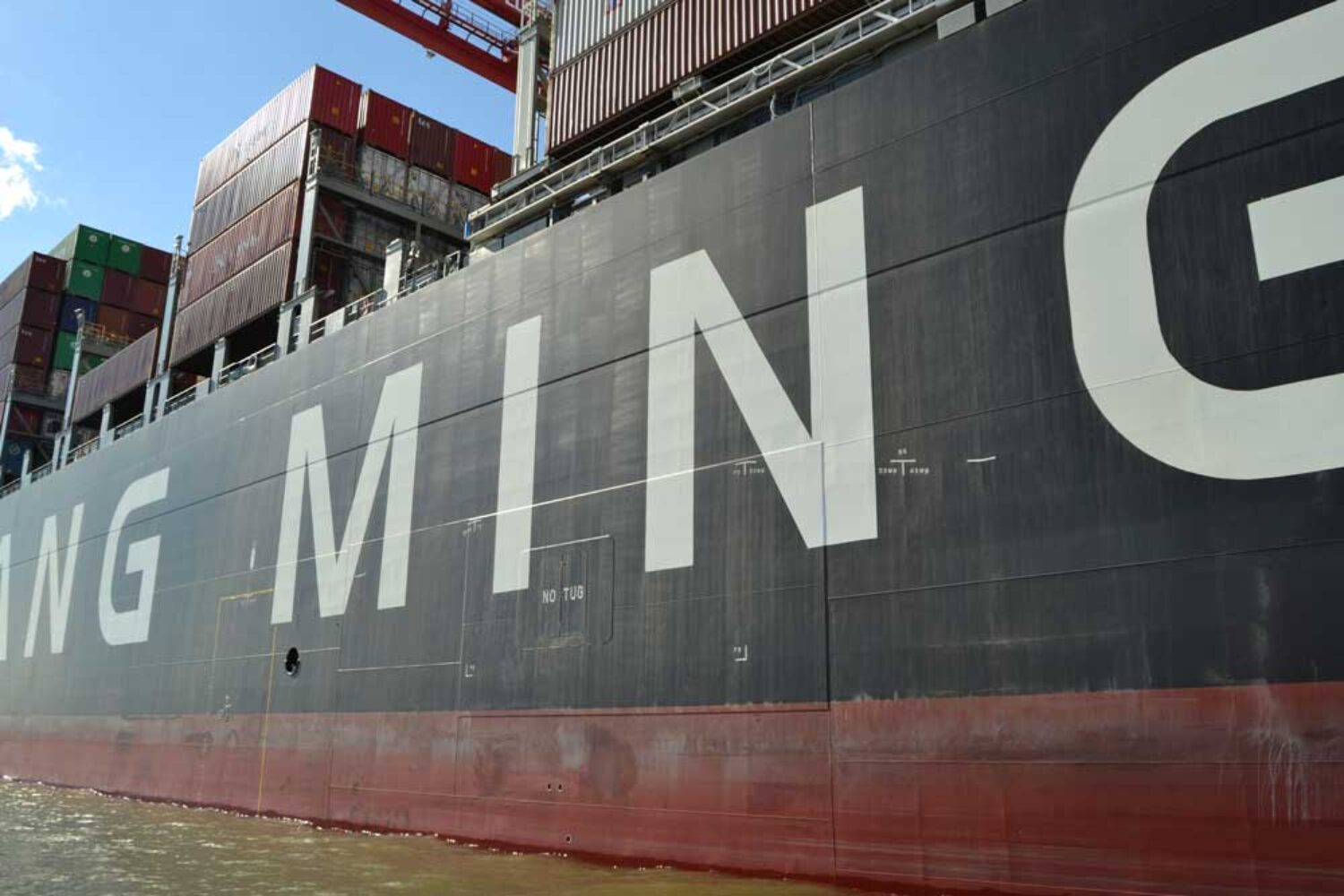The new US government’s threat to impose high additional costs on ships built in China when calling at ports is causing concern in some offices. However, Yang Ming at least is not willing to be dissuaded from its newbuilding plans.
The Taiwanese liner shipping company says that it will not be deterred from considering Chinese shipyards for its future newbuildings.
Yang Ming has already rubber-stamped plans to acquire 13 container ships of 8,000 to 15,000 TEU after net profit jumped to a record high of $2 billion in 2024, far exceeding the $153 million in 2023, when the Red Sea crisis sent freight rates to a post-pandemic peak.
Just a few days ago, Yang Ming took an important step in its fleet development by taking delivery of three 8,000 TEU vessels with methanol dua-fuel propulsion from Shoei Kisen Kaisha, the shipping subsidiary of Japanese company Imabari Shipbuilding.
Future newbuilds are being planned – and the threats from Donald Trump and his administration are playing a role in some shipping accounts. There is a threat of high penalties if a ship built in China wants to call at a US port. The Trump administration wants to mitigate China’s dominance in global shipbuilding in this way. Yesterday, Yang Ming Chief Commercial Officer Kevin Lee said: “We have procedures for ordering ships, and we will not intentionally exclude Chinese shipbuilders; it all depends on the delivery dates and the prices that the shipyards offer.” So far, “none of the ships we own” have been built in China.
However, Yang Ming operates five Chinese-built 12,690 TEU vessels that are chartered for 10 years (from 2020) by Greek owner Costamare. In 2026, the company will take over five 15,500 TEU vessels from HD Hyundai Heavy Industries.
Lee tried to play down the concerns, saying Trump’s plan was still at a preliminary stage. He pointed out: “The Office of the US Trade Representative held two public consultations with stakeholders last week, so we don’t know how things will turn out. It is still too early to judge the impact.”
Despite the downward trend in long-haul tariffs, which was temporarily halted a few days ago, Lee is hopeful that freight volumes will pick up in the second quarter. He said: “We obviously cannot ignore the impact of the US tariffs and we will continue to monitor them. The crisis in the Red Sea continues and all shipping lines are maintaining detours around the Cape of Good Hope. The major European ports are still heavily congested and this uncertainty will continue in Q2.”
He expressed confidence in achieving higher contract rates for the trans-Pacific this year, even if the uncertainty leads to fluctuations in spot rates. Yang Ming does not want to resume transits across the Red Sea until “we are 100% sure that it is safe to do so. Even if we resume transits, we will not fully return to the Red Sea overnight, so these factors will also affect freight rates,” Lee added. (PL)













